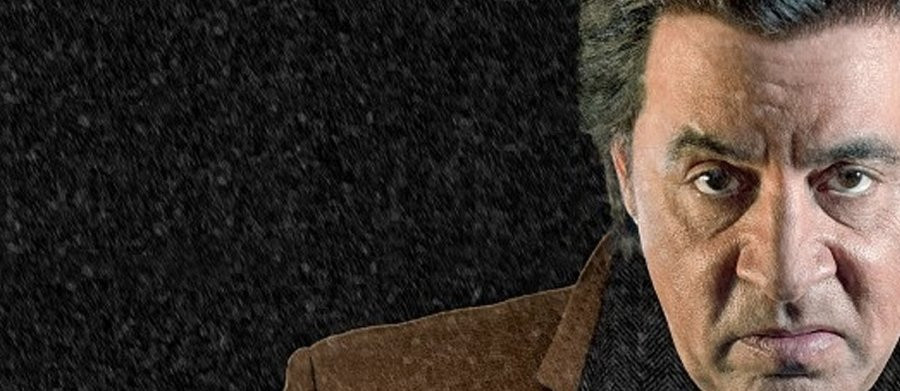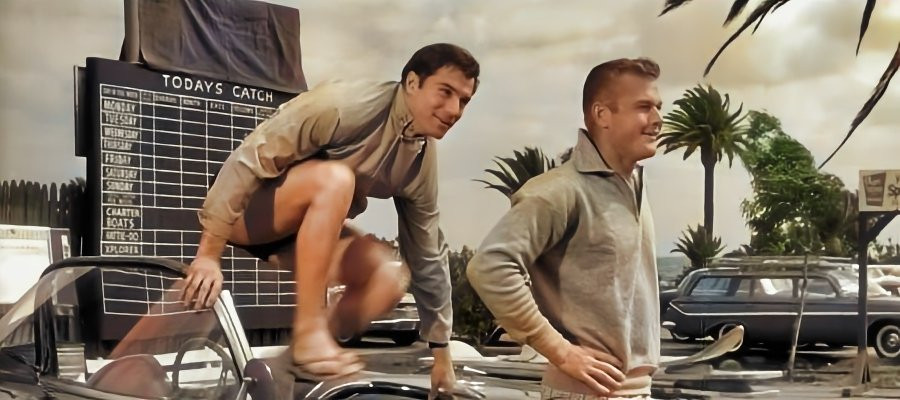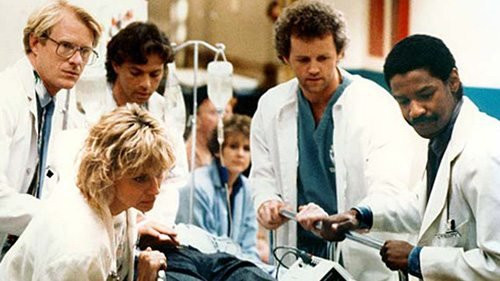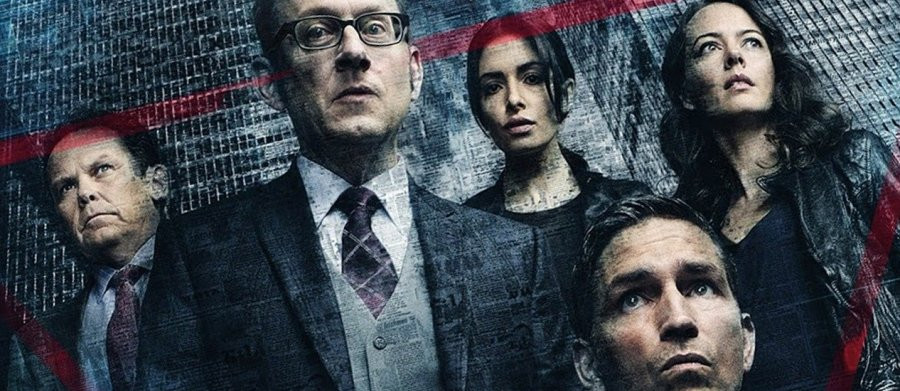
Person of Interest
2012 - United StatesThere are action shows and there are intelligent shows, and rarely the twain shall meet. Person of Interest therefore deserves respect as a genuinely exciting action adventure drama - on a major US network too - that was not afraid to engage with some Very Big Ideas.
The basic premise is very post-2001: a wealthy computer geek, Harold Finch (Michael Emerson), designs a machine, called "The Machine," that can crunch data collected from the entire internet to predict future crimes accurately. This is, of course, similar to the premise in the feature film 'Minority Report,' which was based very loosely on a Philip K Dick short story. However, where the film looks at this from the point of view of an innocent man accused by the system, the series takes the side of the machine, because its designer is so sympathetic, and its accuracy is generally not that much of an issue. Person of Interest seems to think that 'Minority Report' dodged the really difficult dilemma by bringing in inaccuracy and hanging its whole plot on it.
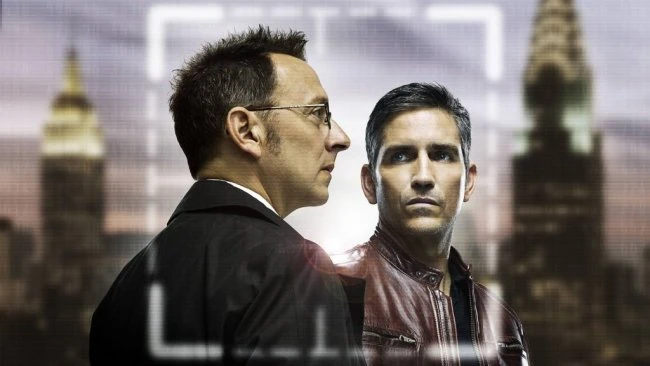
The Big Question in Person of Interest is rather what are the implications of an accurate machine? How should we use it? Should we use it at all? Finch goes off the grid when the Government restricts its use to major terrorist cases in order to maintain secrecy because he cares for the "little people" identified by the machine as also being in danger. He therefore hires a former "black ops" specialist, John Reese (Jim Caviezel), to help him protect them.
At first, this is mostly on a fairly intimate case by case basis, one a week, but as our two unlikely heroes find themselves coming up against increasingly organised crime, longer story arcs develop. Finally, almost inevitably, they must go head to head with the Government which controls the technology they are using - or is the technology now controlling the Government?
This leads to some serious political questions about our "surveillance society" and the power of the internet. The most fundamental is "Who watches the watchers?" - quite literally because imagery of security camera footage, satellite photography, and automatic facial recognition is constant throughout the series.

Of course, paranoia about the relationship between the Government and modern technology has been a commonplace since the 1970s. What makes Person of Interest different is that it shows that, in technological terms, we are now not far from the point where paranoia may not be so paranoid - and that it goes beyond the political into the philosophical.
It invites us to think about the broader meanings of concepts like knowledge, power, and control. Indeed, the dialogue often becomes positively theological. The technology aspires to omnipresence, omniscience, and ultimately omnipotence - defining qualities of the Divine. That in turn begs the question that has troubled theologians since the beginning of philosophy: if there is omnipotence, where does leave human free will? Is everything predestined?
Is it then coincidence that Reese is played by an actor best known for his personable Jesus in 'The Passion of the Christ'? To suggest a producer would pitch a weekly series with Jesus using His "superpowers" to fight crime might sound like tasteless satire, but, knowing Hollywood, it will probably happen one day. In the meantime, Person of Interest comes close...
There are definite parallels. Although Reese is very likeable, and goes around helping people and generally doing good, he is in conflict with the established authorities. Reese also seems to have a degree of access to omniscience, through his connection with Finch, and omnipotence, though his "black ops" skills, but he is not omnipresent: he is only a single human being, who can only be in one place at a time, and who can be hurt and even killed like anyone else.
All comparisons with Jesus end when flashbacks reveal Reese's backstory. Much as we still like him, we see that he has worked with some very nasty people and done some very nasty things. Redemption is another religious theme that features very heavily in Person of Interest.
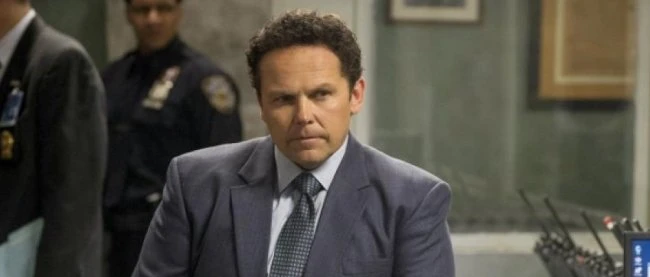
Practically all the featured characters are seeking, finding, or rejecting it. Finch himself is haunted by regrets. So is Fusco (Kevin Chapman), a corrupt cop blackmailed mercilessly by Rees who still wants to be the good detective he set out to be. Their team is joined later by Root (Amy Acker), a positively psychopathic hacker who turns into a loyal collaborator, and Shaw (Sarah Shahi), a "black ops" killer even colder than Reese in his day, who remains just as ruthless except in a better cause. Even Elias (Enrico Colantoni), a criminal mastermind who is a major antagonist at one point, shows an honourable streak in the end.

The only one who does not appear to be in need of much redemption is honest cop Carter (Taraji P Henson), who just seems thoroughly decent. There is no denying that the show lost a lot of its heart when Henson left early to do Empire. However, in her place, our odd couple of Finch and Reese gather Fusco, the delightfully edgy Root, and even anti-social Shaw into a sort of dysfunctional family around them. They also adopt their own family pet, Bear, a former attack dog - who is presumably seeking redemption for biting people in his past or something.

They are united by the knowledge that they are alone in the world against incredible odds, and by the assumption that their resistance will prove both futile and fatal. Again, that sense of predestination hangs heavy. There is indeed hope of redemption, but it comes at a heavy price that someone has to pay. No prizes for guessing who.

In an ideal world, Person of Interest would be the sort of show about which everyone was talking next day. Sadly, as Person of Interest points out, we do not live in that world. Although it was well received and the ratings good enough for five seasons, it never had the popular attention it deserved. Yet it remains a hugely satisfying show on every level and it might well be worth revisiting in a few years time: will we look back on it as the laughably paranoid product of a laughably paranoid time or as chillingly prescient?
Seen this show? How do you rate it?
Seen this show? How do you rate it?
Published on November 8th, 2019. Written by John Winterson Richards for Television Heaven.


